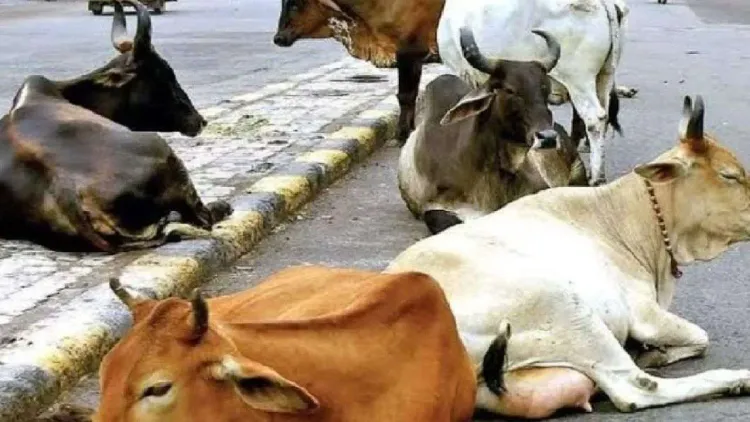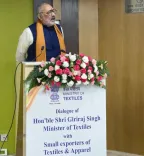How is Ahmedabad Repurposing 2,000 kg of Cattle Waste Daily?

Synopsis
Key Takeaways
- 2,000 kg of cattle waste repurposed daily.
- Supports the Zero Waste City initiative of Ahmedabad.
- Biogas plants provide energy for community kitchens.
- Enhances soil health and reduces chemical fertilizer use.
- Promotes environmentally friendly practices in local celebrations.
Ahmedabad, May 12 (NationPress) The Ahmedabad Municipal Corporation (AMC) is transforming 2,000 kg of dung and green waste produced each day from its stray cattle shelters located in Danilimda and Bakrol. This initiative, announced on Monday, is a crucial aspect of the civic body's comprehensive strategy under the Stray Animal Prevention and Control Policy–2023, designed to tackle the persistent issue of stray cattle in the city, as stated by an official.
The AMC representative noted that this initiative not only facilitates a more humane approach to managing stray cattle but also enhances soil quality, decreases reliance on chemical fertilizers, and plays a vital role in Ahmedabad’s ambition to become a “Zero Waste City.”
Cattle captured by the AMC are relocated to Karuna Temples in Danilimda and Bakrol, where they receive essential care, including food, water, medical treatment, and overall maintenance. Collectively, these shelters produce over 2,500 kg of dung and organic waste daily.
By adhering to the “Reduce, Reuse, Recycle, Resource, and Repurpose” model and the principles of the circular economy, emphasized in the 2024–25 Budget, about 2,000 kg of this waste is repurposed daily into valuable resources.
This waste is transported to the Gyaspur facility, managed by AMC’s gardening department, where it is processed into organic fertilizer. This compost is utilized to enhance the soil in 62 municipal gardens and supports the growth of seedlings and nursery operations.
Additionally, cow dung and dried grass are repurposed into sustainable sticks and compost. These materials are distributed for use in traditional Vedic Holi celebrations and in funeral rites at city crematoriums. In 2025, these sticks were distributed at 57 locations across all seven municipal zones, fostering environmentally responsible festivities.
Advancing its green initiatives, the AMC has established biogas plants at both the Danilimda and Bakrol Karuna Temples.
With a capital investment of Rs 32 lakh, each plant processes one ton of organic waste daily, yielding 50 kg of biogas. This gas is utilized in on-site community kitchens for preparing tea, coffee, and snacks for visitors.
The plants also produce up to 40 units of electricity daily, powering lighting systems and cutting energy costs. The biogas slurry, a nutrient-rich by-product, is employed in nurseries and organic farming.
Inputs for the biogas plants encompass a diverse range of organic materials, including vegetable peels, flowers, leaves, food scraps, and kitchen waste from households and hotels.






